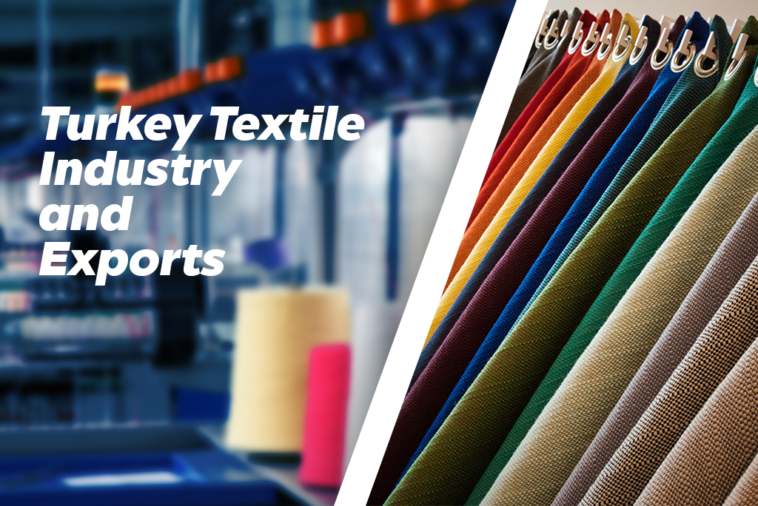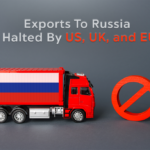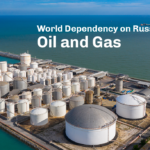Turkey’s textile industry is facing a huge disruption in shipping operations to Russia and Ukraine. The invasion of Russia into Ukraine has caused a significant blockage and an eventual cancellation of services by over $1 billion for Turkey’s textile industry.
The textile industry of Turkey is an important part of the Turkish economy, as it contributes about 7% to the GDP of Turkey. Turkey is one of the largest exporters of textiles related commodities, accounting for almost 3-4% of the total exports by all the countries globally.
Robust Turkey’s Textile Industry
Turkey is the world’s largest exporter of textiles and related products, following China as the main exporter of apparel and other textile products. Turkey’s textile industry accounted for $8.2 billion of exports for the initial period of 8 months in 2021. It was further increased by 23.39% on a year-on-year basis for a period of 10 months in 2021. Turkey’s textile exports surged by $2.86 billion for the same period (Jan-Oct 2021) as compared to the same period of 2020.
The featured graph below shows the difference between each category of textile-related products with their export values recorded for the year 2021. Knitted & crocheted apparels are the largest exports of Turkey among all the below-mentioned categories for 2021 with an export value of worth $9.4 billion. Check other categories and their corresponding values below.
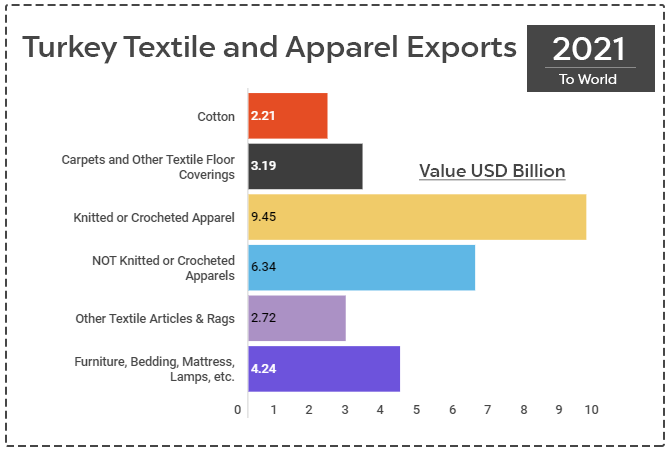
The shown list consists of these categories on the basis of the following HS Code classification:
- Cotton (and Cotton Yarns) – Chapter 52
- Carpets and Other Textile Floor Coverings – Chapter 57
- Knitted or Crocheted Apparels – Chapter 61
- NOT Knitted or Crocheted Apparels – Chapter 62
- Other Textile Articles & Rags – Chapter 63
- Furniture, Bedding, Mattress, Lamps, etc. – Chapter 94
Turkey’s Textile Industry For Russia
The Head of the Istanbul Apparel Exporters’ Association (IHKIB) stated that, with the block on Russian banks to use the SWIFT system, it has become difficult to ship products to Russia and do business with Russian buyers. Local currencies will be used, taking due risks for exchange.
Read More: Russian Banks Block From SWIFT, Driving Investors To Be Anxious
While this is not it, sanctions and bans put on Russia for trading with the major nations such as the EU, UK, and the US has also resulted in the downfall of the Ruble (Russian currency). This will exacerbate the purchasing power of Russia from other countries in cross-border commerce.
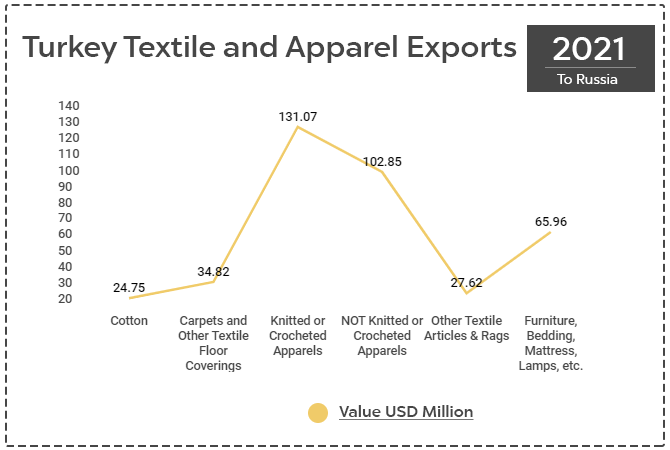
The shown list consists of these categories on the basis of the following HS Code classification:
- Cotton (and Cotton Yarns) – Chapter 52
- Carpets and Other Textile Floor Coverings – Chapter 57
- Knitted or Crocheted Apparels – Chapter 61
- NOT Knitted or Crocheted Apparels – Chapter 62
- Other Textile Articles & Rags – Chapter 63
- Furniture, Bedding, Mattress, Lamps, etc. – Chapter 94
Turkey’s Textile Industry For Ukraine
Businesses in Ukraine have come to a standstill as Russia’s invasion of Ukraine has made the situation worse in Ukraine to receive shipments from its respective ports. The economy is also going through motions due to the conclusion that the military needs capital to fight & survive.
While there is a blockage of transactions for the outbound shipments to Russia and have successful transactions, there is a blockage in the whole process of the shipments reaching and being received at Ukrainian ports, making it impossible to trade with Ukraine for Turkey.
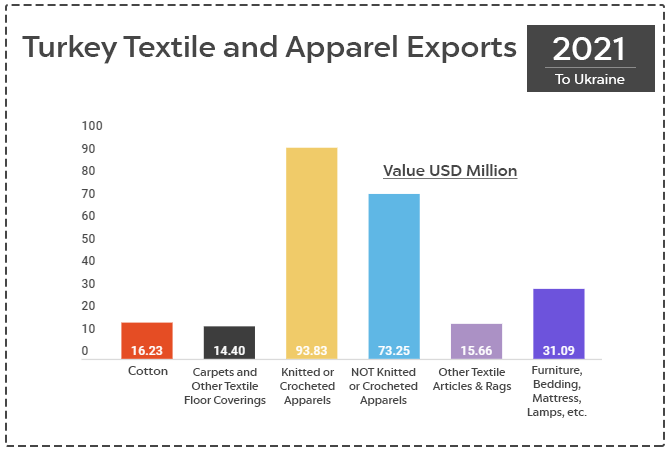
The shown list consists of these categories on the basis of the following HS Code classification:
- Cotton (and Cotton Yarns) – Chapter 52
- Carpets and Other Textile Floor Coverings – Chapter 57
- Knitted or Crocheted Apparels – Chapter 61
- NOT Knitted or Crocheted Apparels – Chapter 62
- Other Textile Articles & Rags – Chapter 63
- Furniture, Bedding, Mattress, Lamps, etc. – Chapter 94
While there have been speculations that through “Shuttle Trade”, the trade between countries might be easy to conduct during the current prevailing situation and circumstances; it is still hard to stay whether the trade and businesses also existing in both the countries will be accessible to Turkey’s textile industry and suppliers.


